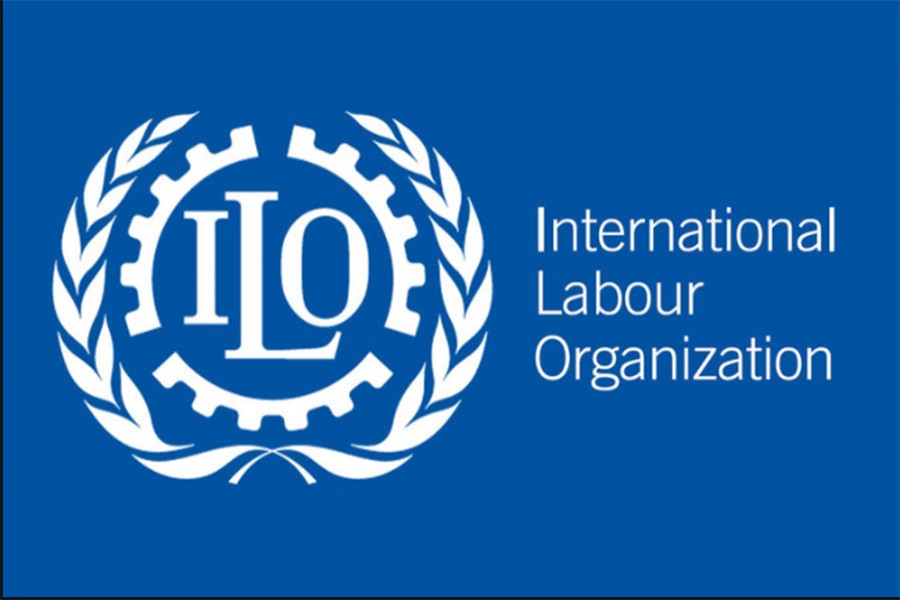International Labour Organization (ILO) called on countries for sound and resilient occupational safety and health (OSH) systems to minimise the risks in the world of work for future emergencies.
The ILO in a report published on Tuesday also stressed for better national occupational safety and health policies, institutional and regulatory frameworks that are also integrated into crisis response.
This will require investment in OSH infrastructure and integrating it into overall national crisis emergency preparedness and response plans so that workers’ safety and health is protected, and the business continuity of enterprises is supported.
The report titled “Anticipate, prepare and respond to crises: Invest now in resilient OSH systems” published on the eve of World Day for Safety and Health at Work to be observed on Wednesday.
Small and micro-sized enterprises have often found it hard to meet official OSH requirements because many have lacked the resources to adapt to the threats posed by the pandemic, according to the report.
ILO Bangladesh country director Tuomo Poutiainen in a statement said, “The second wave of the pandemic is sweeping across Bangladesh as we mark World Day for Safety and Health at Work 2021.”
Many hundreds of thousands of workers continue to work hard to keep the society and the economy functioning, he said adding the pandemic has clearly shown the importance of OSH in creating a safe working environment and its impact on public health.
“The occupational safety and health of all workers in all industries must be a national priority,” he added.
The ILO has helped develop a national Covid-19 OSH guideline which was approved and published by the labour ministry.
The safety of workers and business sustainability can both be secured if the measures recommended in this guideline are implemented across all industries and workplaces”, Mr Poutiainen added.
According to the report, in the global informal economy, many of the 1.6 billion workers, especially in developing countries, have continued working despite lockdowns, restrictions on movement and social interaction, and other measures. This has put them at high risk of catching the virus, yet most do not have access to basic social protection, such as sick leave or sick pay.
“In the absence of protection such as sick leave or unemployment benefits, millions of workers are forced to make a cruel choice between their health and their livelihoods, which not only puts them at risks but also others they come in contact with. The current crisis highlights the need for equitable, inclusive and human-centred responses,” Mr Tuomo Poutiainen said.
In Bangladesh, the government, employers and workers’ organizations must work together to continue strengthening of the OSH institutional and regulatory frameworks and OSH management system at national and workplace levels, he said.
Investing in OSH systems will not only contribute towards responding to the current pandemic and recovering faster by avoiding further contagion but will create resilience to face any future crises that might lie ahead.
At the same time, it is important to establish urgent safety net programmes for low-wage workers, the self-employed, and workers and enterprises in all the hard-hit sectors including informal ones,” Poutiainen added.
The report examined risk prevention and management relating to the pandemic and analysed other health and safety risks associated with the changing work arrangements arising from virus control measures.
It outlined the critical roles played during the pandemic by occupational safety and health regulatory frameworks and institutions, compliance mechanisms, health and advisory services, data, research and training.
“There could be no clearer demonstration of the importance of a strong, resilient, occupational safety and health environment. Recovery and prevention will require better national policies, institutional and regulatory frameworks, properly integrated into crisis response frameworks,” said ILO Director-General, Guy Ryder.
International labour standards (ILS) provide tools to implement OSH measures and to ensure that workers, employers and governments can maintain decent work, while adjusting to the socio-economic consequences of the pandemic, said the report.
ILS also encourage social dialogue as the best way to ensure that procedures and protocols are effectively implemented and accepted.
While the public health system has a responsibility to prevent the spread of the COVID-19 virus and other public health threats to the entire population, strong and effective national OSH systems are essential to safeguard the life and health of workers, and for this, they must be equipped with adequate human, material and financial resources.


